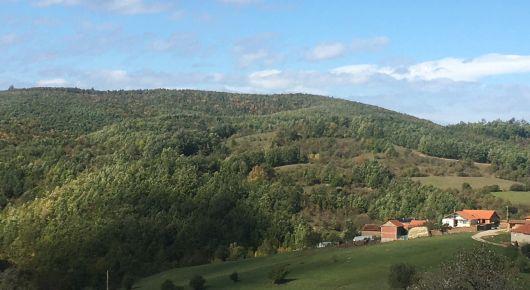With forests, Kosovo* is getting closer to sustainable, inclusive development

Launched today, a new endeavor to strengthen sustainable and multipurpose forest management in Kosovo has set sail with the ultimate goal of tackling rural poverty and climate change[1]. Since forests have a major role in fighting climate change, they are also an important natural asset in Kosovo.
Altogether, by the end of the four-year programme , forests in Kosovo should be in a better shape, and forest users should equally value its wood and non-wood products, environmental value and ecosystem health.
The programme, designed by the Food and Agriculture Organization of the United Nations (FAO) and the Ministry of Agriculture Forestry and Rural Development, has received 24 million Swedish Kronor (approximately USD 2.6 million) of financial support from Sweden. A contributions from the European Union Office in Kosovo is expected to follow by the end of 2020.
“We hope that this cooperation will pave the way for a reflection on the global environmental and climate change issues, and will help create a common vision on necessary policy choices that will address current forestry and climate change challenges of Kosovo”, said Karin Hernmarck Ahliny, Ambassador of Sweden in Pristina.
The programme aims to improve forest management in three key areas: trade and law enforcement related to timber; transparency, governance and implementation of forestry regulations and programmes; and forest management through adoption of multi-purpose forest management practices. All these will help Kosovo achieve European and international sustainability targets.
“Without a proper forest management, Kosovo’s forests are in danger for gradual degradation,” said FAO Raimund Jehle, FAO Regional Programme Leader. “Training and awareness raising activities under this programme will bring about change in public perception and in the authorities’ approach.”
In the last years, forests in Kosovo have been exploited beyond a sustainable level to mainly to provide heating. Recent studies suggest that for saving forests in Kosovo, better management and a more balanced use of forest resources must be applied.
“The programme will bring attention to the need to stop illegal logging. Among others, firewood harvesters and buyers will be given suggestions to use small-diameter thinning and salvage wood, instead of high-value wood,” said Daniela Mangione, FAO field programme officer and moderator of the launch.
There are already frameworks in place on forest management, health, and reforestation, however these require an additional support to serve their purpose.
“People in Kosovo should enforce rule of law and develop a sense of collective responsibility for the future of their forests,” Jehle added.
The programme in practice
Forest areas, public and private, will be used according to multi-purpose forest management principles. This approach goes beyond the perception that forests serves only as source wood for heating and considers forests’ non-wood products, environmental, social, recreational functions in planning and maintaining forest areas.
Activities will enable Kosovo to meet its target of five percent forest area increase. Afforestation and reforestation activities will mostly focus on single or mixed specie planting, mainly broad leaves, for maximal timber and firewood production. The Kosovo Forest Institute will provide one million seedlings for this purpose.
Foresters, forest owners, public officials, and the populations living near forests, especially youth and women, will be targeted with practical trainings including trainings on best practices for value chains of forest products and ecotourism. The programme puts an emphasis on gender equality and helping rural women on using forestry sector opportunities for income generation activities.
The programme will introduce information and communication technology and remote surveillance tools, such as drones, and blockchain-based technology to better monitor and protect forests. Also, it will bring new impetus and transparency to the Kosovo Forest Information System, established by a previous FAO project.
The programme supports realization of the Kosovo’s Development Strategy for 2016–2021, Policy and Strategy Paper on Forestry Sector Development 2010 – 2020, Agriculture and Rural Development Programme (2014–2020), the UN Kosovo Team Common Development Plan, and further strategic documents.
*This designation is without prejudice to positions on status, and is in line with UNSCR 1244 and the ICJ Opinion on the Kosovo declaration of independence.
[1] The programme is designed consistent with United Nations rules, practices and procedures. References to Kosovo shall be understood to be in the context of Security Council resolution 1244 (1999).
28 October 2020, Pristina, Kosovo
